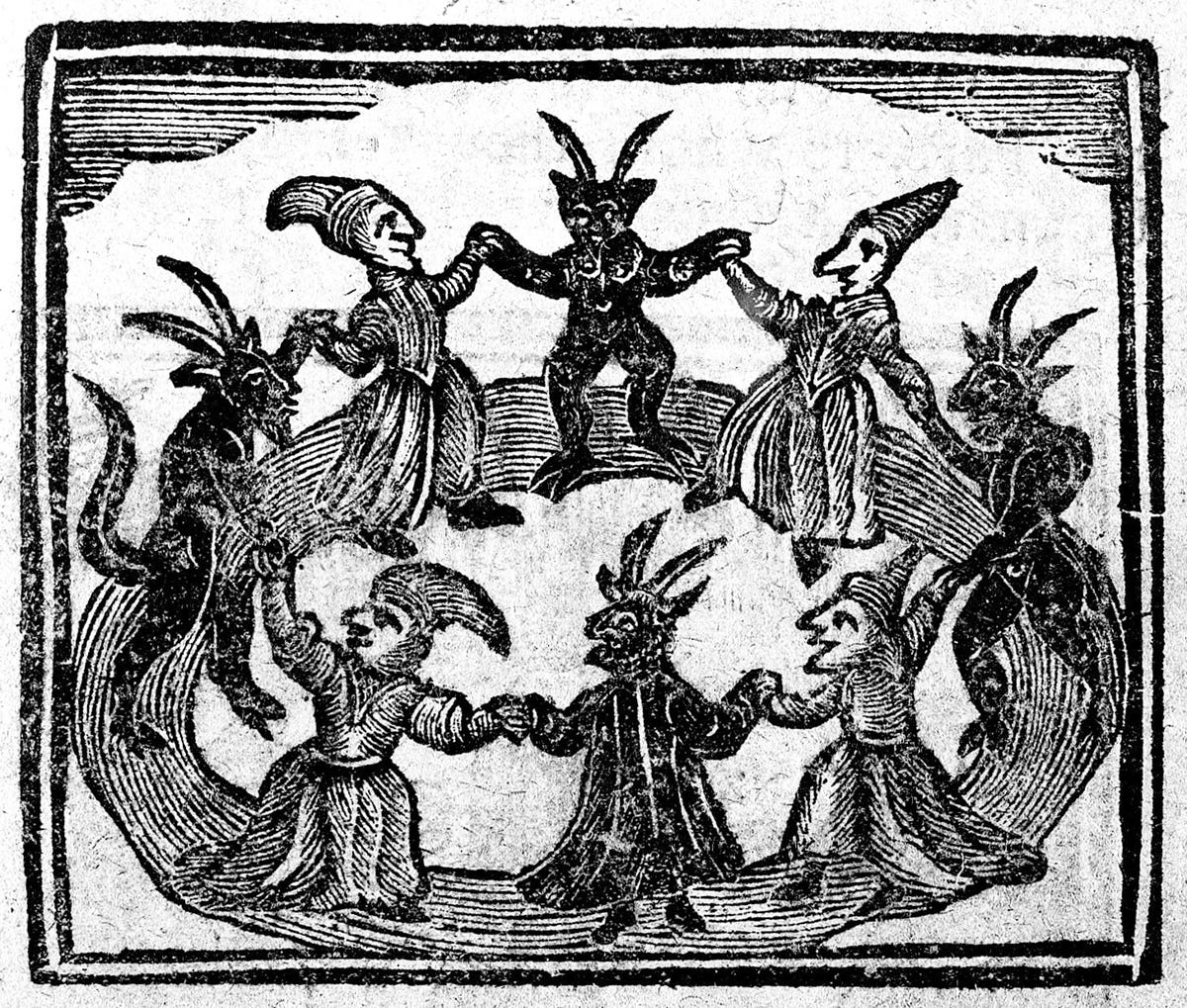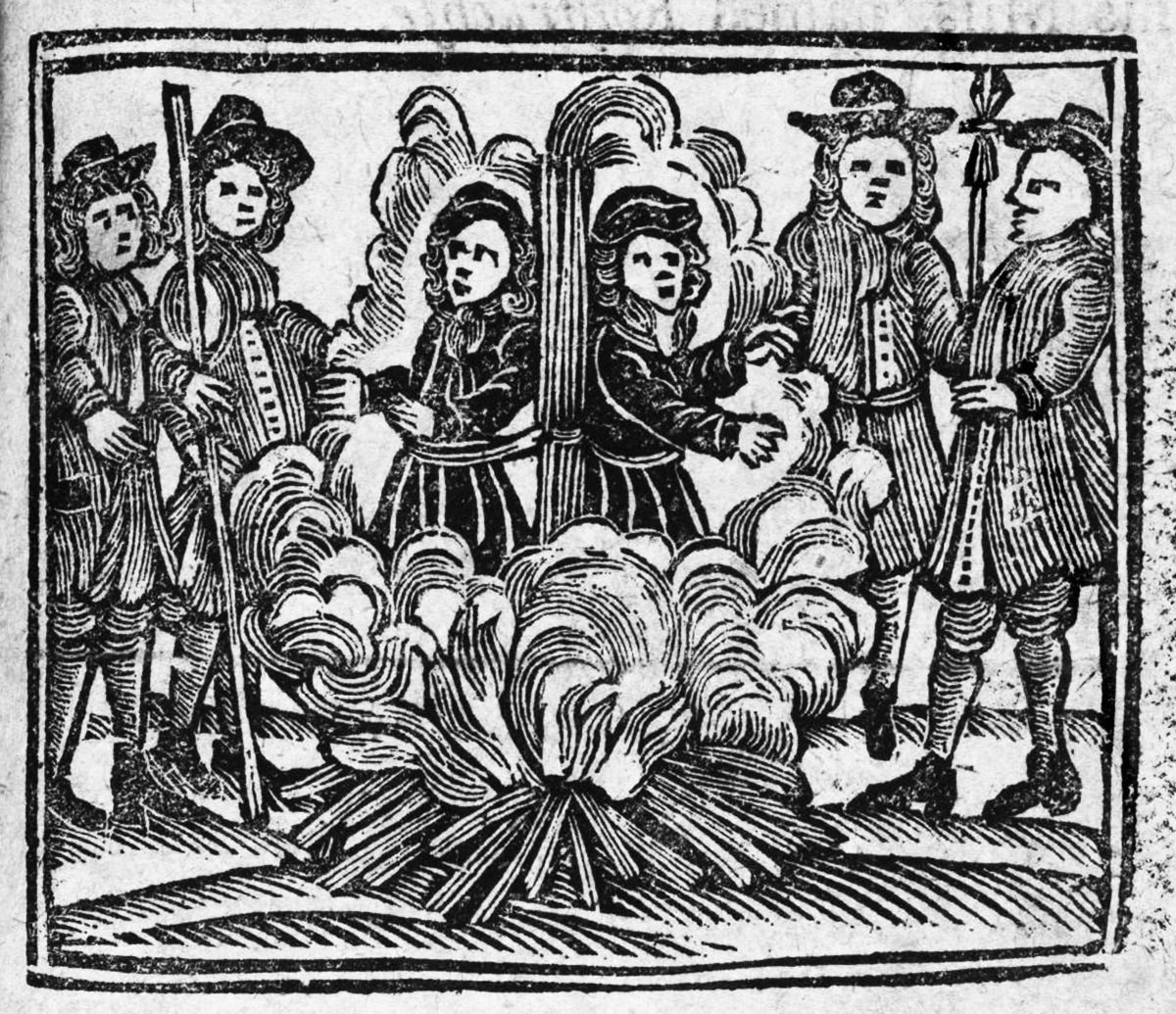Issue 20: the campaign righting some of Scotland’s historic wrongs
For those unjustly persecuted in the past, those still in danger of witchcraft accusations today, and all women.
“There are tiny fishing villages all around Scotland that had larger incidences of people executed for witchcraft than Salem.” But, says Claire Mitchell QC, “not enough people know about it”.
“It’s an important part of Scotland’s history, but we’re not terribly good at history. Our history tends to be based around wars, and kings and queens. The history of women in Scotland is woefully underplayed – the famous exception to the rule being if you’re a queen, or in the royal court, or in a relationship with a king.
“But history isn’t just about those things, history is about how people lived years ago. It’s just that we’re not learning about domestic history in the same way. I think it’s important as a species of human beings that we do learn that sort of thing.”
It was Mitchell’s interest in “what women’s lives would have been like” over the past centuries, as well as her professional specialism in cases of injustice, which led her to launch the Witches of Scotland campaign on International Women’s Day 2020.
The campaign has three aims:
An apology for all those who were accused: “I thought it was important to recognise – for the state to recognise – that a terrible injustice had been done to thousands of people in Scotland accused of witchcraft. There were many accused who suffered terrible fates, were tortured, died before they could come to trial, all sorts of things.”
A pardon for all those who were convicted: “I wanted to change the status of those who had been convicted, to people who've been pardoned of the crime.”
A national monument: “I want some bloomin’ great big memorial to make it clear to people, in a public space, to see our history, to see the history of Scotland, and Scotland's women.”
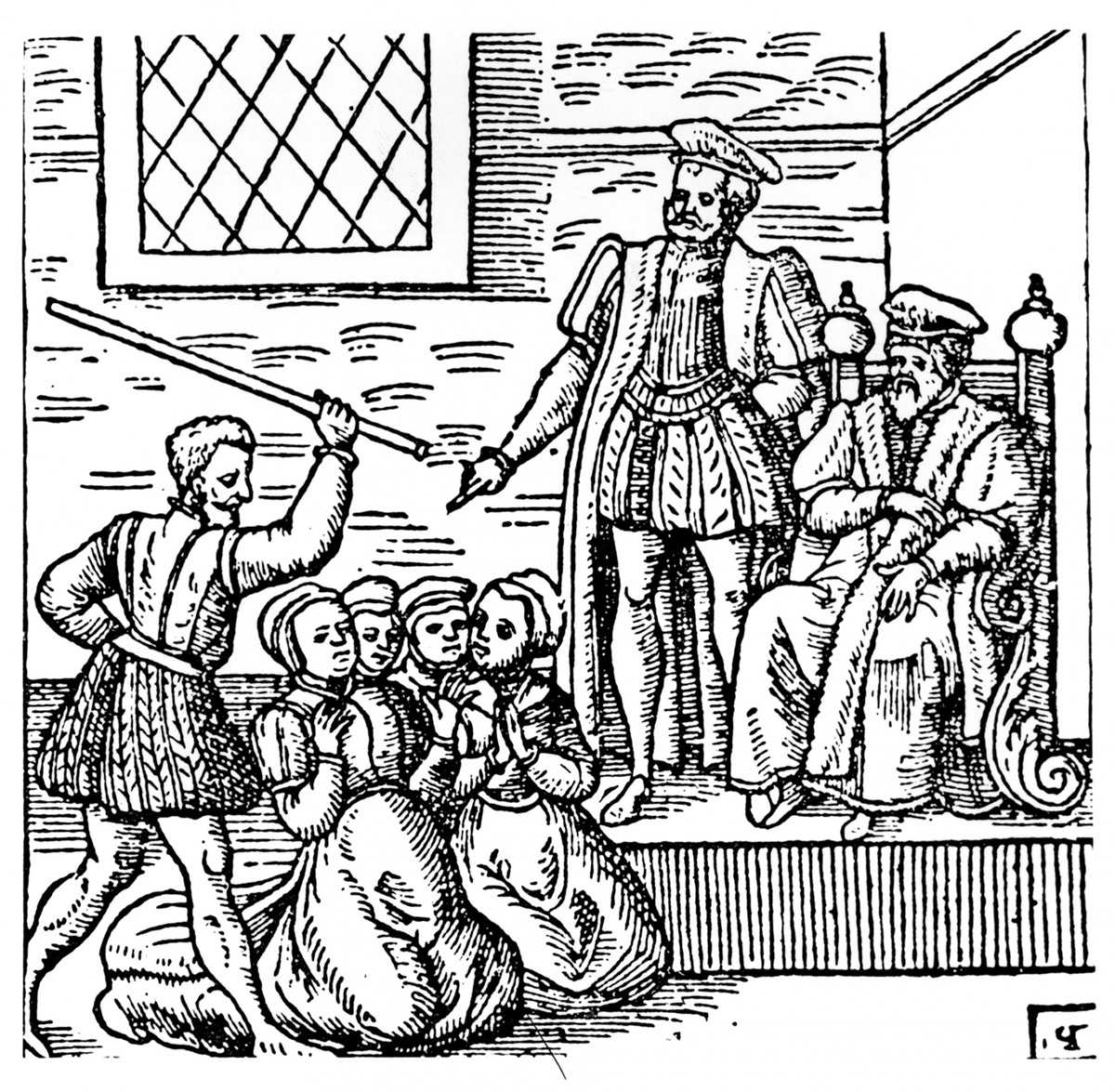
Witchcraft was a capital crime in Scotland from 1563 until 1736. Those accused were tortured to confess, and then strangled to death and burned at the stake. Estimates suggest around 4,000 people in Scotland were accused of witchcraft, of which around 2,500 were found guilty. 85% of them were women – “a higher percentage than other countries,” Mitchell says.
However, those accused and convicted in Scotland were not what we might think of as witches in the modern sense, Mitchell explains.
“Modern day witches are akin to what we used to call ‘charmers’. And although some charmers happened to be accused of witchcraft, they weren’t being accused of witchcraft because of the fact they were doing charms, that was just incidental to them being accused.
“What was identified as an act of witchcraft back then was using the devil’s power to do bad with. People were being accused of things they couldn’t possibly have done, like crops failing. And why was it that mostly women were seen as witches? The answer is that women were seen as easier targets for the devil, because they had no powers in society, they were seen as less upstanding, less moral, and therefore more easily given to the devil. The underlying rationale was really misogynistic.
“And sadly, when we look at the modern day, I think that we haven’t made the progress that we hoped we’d make. Women in society are still not given equality, they’re still not – for the most part – heads of industry or heads of state. They’re still scared because society isn’t a safe place for women. We should be doing more; we should be doing better.”
Mitchell says she “started [the campaign] without a real concept of how long it would take”, but two years on, considerable progress is being made.
On 8 March this year – International Women’s Day – Scotland’s First Minister, Nicola Sturgeon, issued a formal apology for the "egregious historic injustice" suffered by those accused, convicted, vilified, and executed under the Witchcraft Act 1563.

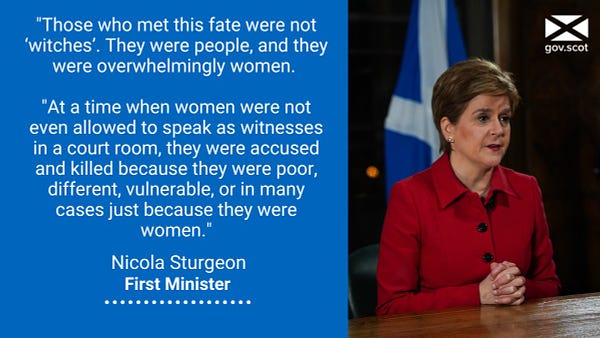
“It felt absolutely amazing,” Mitchell says of Sturgeon’s statement. “For the first time ever, since the 16th Century, those people are being recognised, and an apology being given to them. It’s incredible.
“Of course, apologies aren’t really for those people who are dead. The apology is a reflection that it’s important – no matter how long ago the crime happened – to say sorry when things have gone wrong, and people have suffered as a result of it.”
Last month, the Scottish Parliament's Citizen Participation and Public Petitions Committee agreed to write to the Scottish Government asking it to consider setting up a national memorial for those persecuted under Scotland’s Witchcraft Act.
And last week, Natalie Don MSP launched a public consultation on a Bill to pardon those convicted of witchcraft in Scotland’s past.

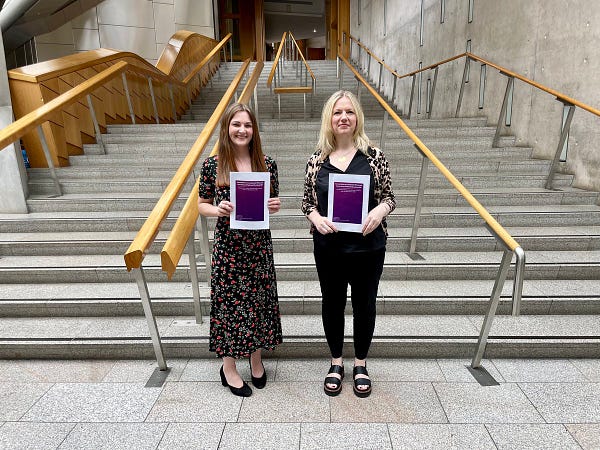
Don says of last week’s announcement: “The recent formal apology from the First Minister on International Women’s Day was welcomed by campaigners in Scotland and recognised around the world as a statement of intent. It was a powerful and incredibly important first step in righting the historic wrong of ‘witchcraft’ accusations, arrests, and executions.
“My Members’ Bill will hopefully be the next step towards that and, if passed, it will make clear that the people convicted of witchcraft all those years ago should never have faced the injustice of being labelled as criminals.
“By issuing official pardons for all of those convicted of witchcraft, we will be sending a strong message to the wider world – some parts of which, women still face persecution for being accused of witchcraft – that Scotland recognises what happened to these people as a deplorable miscarriage of justice.
“It is also about influencing the gendered and patriarchal attitudes which, unfortunately, still exist in our society today, and making it clear that Scotland does not tolerate discrimination in any way.”
Mitchell and the campaign group say they are “absolutely delighted” to see Don’s Bill reach the consultation stage and hope it “will bring about some posthumous justice to the thousands of people who were executed by the state during the witch hunts”.
Support the campaign to pardon those historically convicted of witchcraft in Scotland via the public consultation.
Explore the University of Edinburgh's Survey of Scottish Witchcraft, a digital database of the around 4,000 people accused and convicted of witchcraft.
More: The Witches of Scotland campaign’s influence is reaching further afield, too. Campaign members were asked to speak at an International Women’s Day event in Catalonia in 2021, “and I'm pleased to see that in nine months they’ve gone from their campaign starting to getting a formal official pardon,” Mitchell says. The group is also in discussions with campaigners in the Basque region and multiple people in England.
Thanks for reading. Feel free to hit reply to share your thoughts or feedback.
Til next time,
Amy
PS: If you enjoyed this newsletter, please share it with your friends/family/workmates.
If you're seeing this newsletter for the first time, why not subscribe to get it delivered direct to your inbox?!
We sporadically post and retweet things we like over on Twitter – if you’re a fan of that app…



